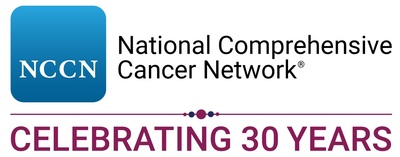New research in the January 2021 issue of JNCCN—Journal of the National Comprehensive Cancer Network finds more than a third of eligible people miss timely screening tests for colorectal cancer and at least a quarter appear to miss timely screening tests for breast and cervical cancers.
|
PLYMOUTH MEETING, Pa., Jan. 13, 2021 /PRNewswire/ -- New research in the January 2021 issue of JNCCN—Journal of the National Comprehensive Cancer Network finds more than a third of eligible people miss timely screening tests for colorectal cancer and at least a quarter appear to miss timely screening tests for breast and cervical cancers. The study comes from the University of Alberta, Faculty of Medicine and Dentistry in Alberta, Canada, with findings based on self-reported results from the Canadian Community Health Survey (CCHS) from 2007-2016. According to the author, the results also point to evidence of screening disparities being linked to lower socioeconomic status and identifiable minority race—echoing a similar study conducted in the United States by the Centers for Disease Control.1 "We already have high-quality evidence showing that recommended cancer screening saves lives. From a cost perspective, it is far cheaper to have an efficient cancer screening program and lower cancer-specific mortality than to have a high incidence of advanced incurable cancers that would cost the system much more—not to mention the lost opportunities for healthy, cancer-free individuals to work and contribute to the economy," said Omar M. Abdel-Rahman Abdelsalam, MBBCh, MSc, MD, Assistant Professor of Medical Oncology, University of Alberta. "These findings show we need more measures to eliminate socioeconomic-related health disparities in our communities, even where healthcare is publicly funded. The most powerful intervention to improve screening rates would be to invest more in primary care and make sure every individual is linked to a family physician who can track their adherence to recommended screening tests." Dr. Abdel-Rahman looked at self-reported data for 99,820 people eligible for colorectal cancer screening, 59,724 people eligible for breast cancer screening, and 46,767 in the cervical cancer screening cohort, based on Canadian guidelines from 2007 through 2016. 43% did not have a timely screening test for colorectal, 35% did not have timely mammography, and 25% did not have a timely PAP smear. There were modest increases in screening compliance throughout the study's duration according to self-reporting within the survey. "Dr. Abdel-Rahman's study adds to the literature showing that decreased levels of adherence to common cancer screening practices are associated with social and economic disparities," commented Mark Helvie, MD, Director, Breast Imaging Division, University of Michigan Rogel Cancer Center, Vice-Chair, NCCN Guidelines® Panel for Breast Cancer Screening and Diagnosis, who was not involved with this research. "Colorectal cancer screening had the lowest compliance with over a third reporting not being screened. While important differences exist between the NCCN Guidelines for screening and the Canadian screening guidelines—especially regarding colonoscopy and initiation and frequency of mammography—they all agree there is a need for more targeted efforts, research, and education to understand and improve compliance among all individuals, as illustrated by this study's results." The research data does not include any impact from the COVID-19 pandemic. However, the publication is particularly timely as doctors report concerning drop-offs of screening numbers, which are projected to possibly result in thousands of excess cancer deaths over the next ten years2. The study further highlights how economic and racial disparities contribute to unequal health outcomes and showcases the need for interventions that go beyond coverage for health services alone. To read the entire study, visit JNCCN.org. Complimentary access to "Patterns and Trend of Cancer Screening in Canada; Results from a Contemporary National Survey" is available until April 10, 2021. About JNCCN—Journal of the National Comprehensive Cancer Network About the National Comprehensive Cancer Network 1 Hall IJ, Tangka FK, Sabatino SA, Thompson TD, Graubard BI, Breen N. Patterns and Trends in Cancer Screening in the United States. Prev Chronic Dis 2018;15:170465. DOI: http://dx.doi.org/10.5888/pcd15.170465 2 Sharpless, Norman E., COVID-19 and cancer, 2020, https://science.sciencemag.org/content/sci/368/6497/1290.full.pdf Media Contact:
SOURCE National Comprehensive Cancer Network |





